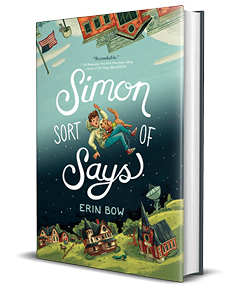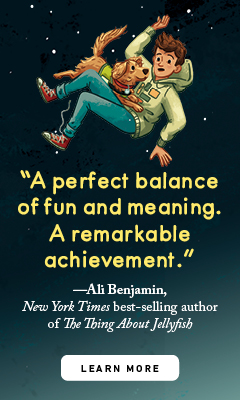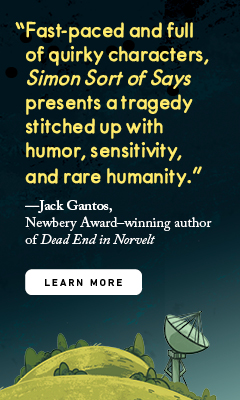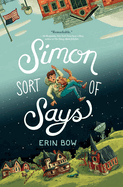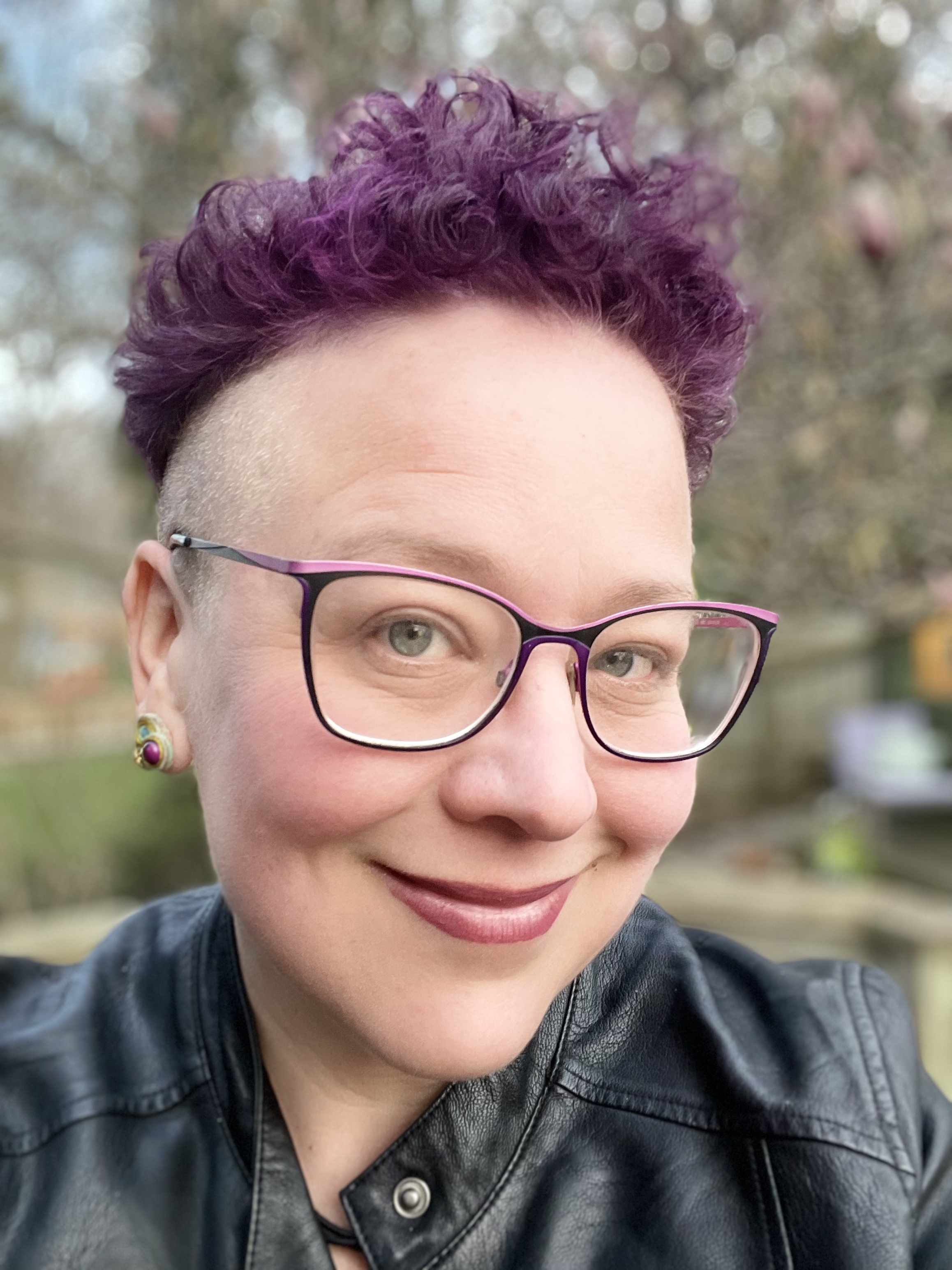Simon Sort of Says
by Erin Bow
Escaping the memories of a traumatic event may be impossible, but in this poignant and remarkably funny middle-grade novel, Simon and his family hope to at least leave behind all the public attention.
Twelve-year-old Simon, his undertaker mom and liturgical director dad move to Grin and Bear It, Nebr., a National Quiet Zone with "no internet and no cell phones and no TV and no radio." Simon tells people that his family was "driven out [of their last town] by alpacas," and the longer story attached to this claim is dramatic and almost plausible. The truth, however, is much darker. Two years earlier, Simon was the only child to survive a shooting in his fifth-grade class in another small Nebraska town. After a year of homeschooling, and--it is true--an unfortunate alpaca incident in his father's church, Simon and his family moved to GNB, as locals call it, for a fresh start. As it turns out, the fresh start is jam-packed with hugely entertaining characters and adventures.
The Internet-free town of Grin and Bear It loosely divides itself into Team Science ("astrophysicists and other tech-types") and Team Farm ("homesteaders and other socks-with-sandals types"). Simon's new friends, though, can't be pinned down quite so easily. Spiky green-haired Kevin's mom is a radio astronomer, but he's also obsessed with Cornhusker football. Agate, who cheerfully informs Simon she is "an autistic person," lives on a farm but, in Simon's opinion, is "definitely the seventh grader most likely to build a doomsday device." Within minutes of their meeting, she has recruited Simon to help her fake a message from space aliens because, she says, "the scientists have been listening for ages and they haven't heard anything. I don't want them to give up hope." Simon's parents are doing their best to adjust to life in GNB, too. His mom has a bungling assistant who attempts to retrieve one wrong (live) body from a nursing home and ultimately loses another body out the back of the hearse onto the highway. His dad is dealing with outraged congregants after a squirrel chews its way into the tabernacle and eats the communion host. "That squirrel is now thirty percent Jesus by volume," his mom says wryly. "It's our new god."
For a while as they read Simon Sort of Says, readers might think this is a droll coming-of-age story about a seventh-grader who moves to a new town and must face all the accompanying folderol. There's hilarity and slapstick, gross-out facts, misunderstandings and sweet friendships. Those readers are correct... but there's so much more.
It takes tremendous skill and restraint for an author to write about a mass school shooting without descending into the maudlin and sensational. Erin Bow (The Scorpion Rules; Plain Kate) achieves this literary feat with grace and sensitivity. The shooting that took place two years before the action of Simon Sort of Says is addressed indirectly in subtle references: wherever he goes, Simon keeps an eye out for an "escape route." He has a new backpack because he "never got the old one back." He turns down a trip to Denver because it "will have things [he's] not sure [he's] ready to see again. There will be sirens, and... the hospital, which will have that smell." Bow eventually does reveal what happened on that terrible day, but she keeps the details to a tight, excruciating minimum. Meanwhile, she does not hold back on the morbid humor, nor do Simon's fiercely loving, hurting, drily witty parents. During one of Simon's panic attacks, for example, his mother storms off to lock into the hearse the funeral home's distractingly noisy and lecherous resident peacock. "I'm driving him straight to the taxidermist," she says. "I'm donating him to an avian flu research program. I'm plucking his feathers and using them to fletch arrows." Then she crawls back under the bed where she and Simon's father have been lying with their son, holding him tightly. Bow walks the narrow line between a deep respect for tragedy and the necessity for humor in dire times.
Simon Sort of Says reads as natural and believable, even with its delightfully absurd scenarios: "My mom is in trouble for losing a body. My dad is in trouble for starting a death-metal squirrel cult. Last night me and two friends impersonated an alien civilization using a microwave, a metronome, and an air mattress." In spite of everything, Simon is very much a regular 12-year-old kid. Readers are likely to fall hard for Simon, his friends and his family, every one of whom is worthy of a novel of their own. Simply put: Simon Sort of Says is extraordinary. --Emilie Coulter



